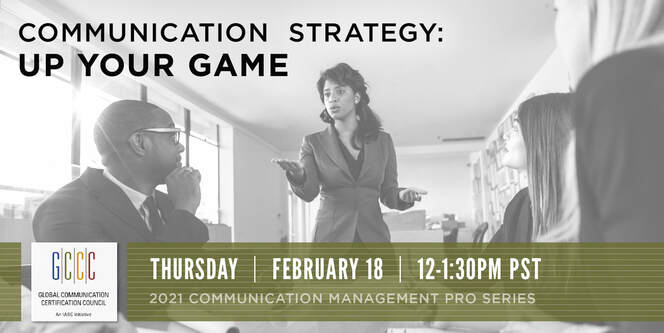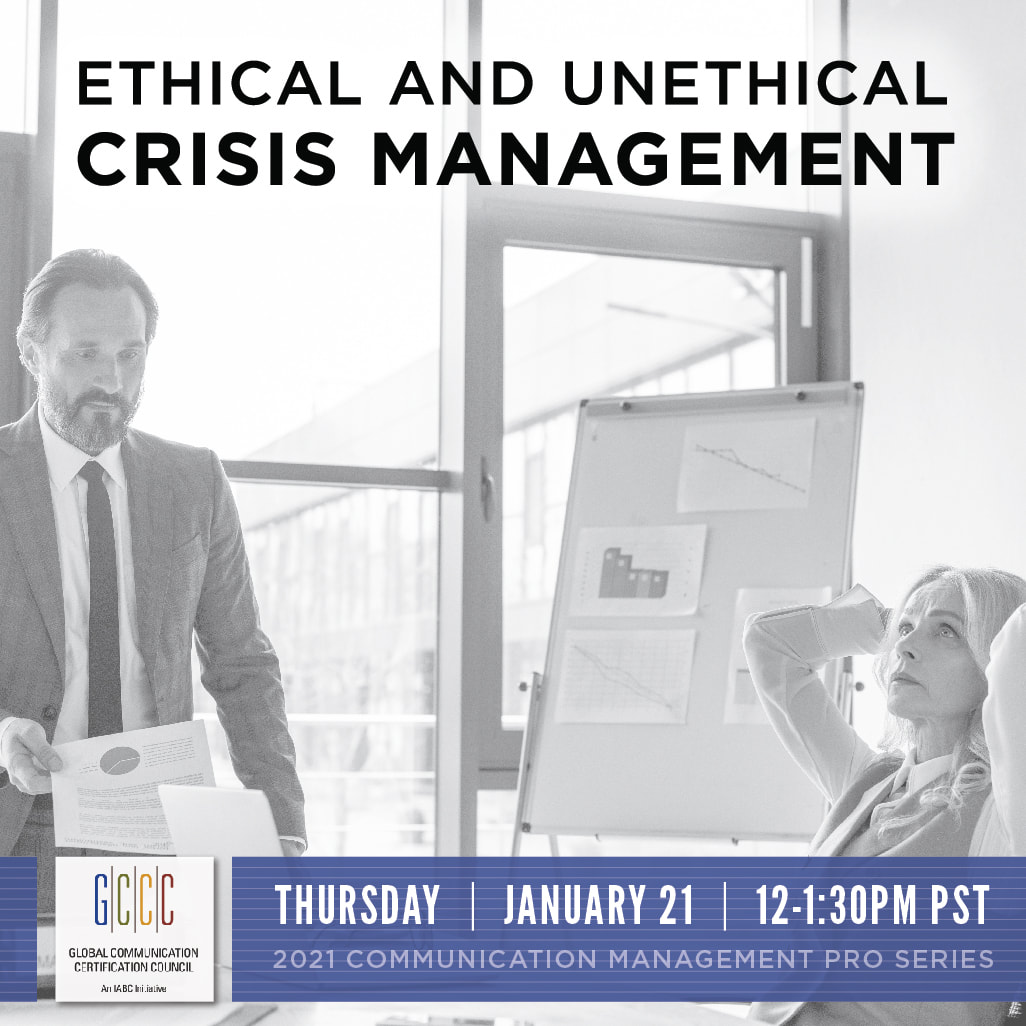(Note: I’m IABCLA's vice president/president-elect, and I often post updates on chapter happenings.)
0 Comments
IABC San Diego will host “Communication Strategy: Up Your Game” on Thursday, February 18 at 12 p.m. PST. Cason Lane, ABC, will discuss the anatomy of a communications strategy.
Lane, who’s spent 25 years in strategic communications, will explore what separates strategic thinkers from tactical ones and provide real world examples of what strategy looks like in action – from internal communications to marketing to corporate social responsibility. The session is part of the 2021 Communication Management Pro Series, a collaboration between five California IABC chapters – Los Angeles, Orange County, San Diego, San Francisco, and Silicon Valley – in preparation for the Communication Management Professional (CMP) and Strategic Communication Management Professional (SCMP) certification exams. Danielle Bond, SCMP – Vice Chair IABC Executive Board, will answer questions about CMP and SCMP certification following Lane's presentation. Testing will be offered as pandemic conditions allow on Saturday, May 1 in Irvine, California. (Note: I’m IABCLA's vice president/president-elect, and I often post updates on chapter happenings.) Note: I'm the vice president/president-elect of IABC Los Angeles (IABCLA), and I often post news of chapter happenings. Deborah Hudson, my fellow board member, wrote this overview of IABCLA's recent workshop on “Ethical and Unethical Crisis Management,” for our group's blog. I wanted to share her outstanding piece. By Deborah Hudson, ABC IABCLA Vice President, Member Retention; Past President We’ve seen our share of crises in 2020 – personal, medical, professional, political. So, an hour with Jim Lukaszewski, America’s Crisis Guru®, IABC fellow and co-author of The Decency Code, was just what the doctor ordered.
I came to the workshop with some experience in crisis communications working with risk management for insurance companies – tabletop exercises, scenarios, training, after action reports. But from the beginning of Jim’s presentation, I added substantially to my understanding.
What is a crisis? According to Jim, crises are “show-stopping, people-stopping, product-stopping, reputation-redefining, trust-busting situations that create victims or explosive visibility.” Victims? Looking at crisis management as caring for victims opens up new insights and approaches. And new timelines. Move fast… the “golden hour” for victims is 60-120 minutes. Minutes. After that, accusations of being manipulative, secretive and inauthentic complicate relationships and the path to resolving the crisis grows longer and twistier. Jim points out that apology and empathy are the ethical and practical approaches to a crisis. “Apologies,” he said “tend to stop bad things from starting and starting bad things to stop.” And empathy is a positive, constructive action that demonstrate decency and integrity. And, according to Jim – and who would argue with him – empathy speaks louder than words possibly can. And that is critical for communicators to keep in mind. Empathy first, then speeches and releases. In a rich presentation and discussion, these are just two highlights. This is the first of four presentations in the Communication Management Pro Series – covering strategy, measurement, and audience-centric communications. Use the series to work toward your CMP or SCMP certification in 2021 (the exam will be held following the series) or simply use it to refresh or improve your communication management knowledge and practice. Find out more at iabcla.com/events. |
AuthorI'm Eli Natinsky and I'm a communication specialist. This blog explores my work and professional interests. I also delve into other topics, including media, marketing, pop culture, and technology. Archives
July 2024
Categories |



 RSS Feed
RSS Feed